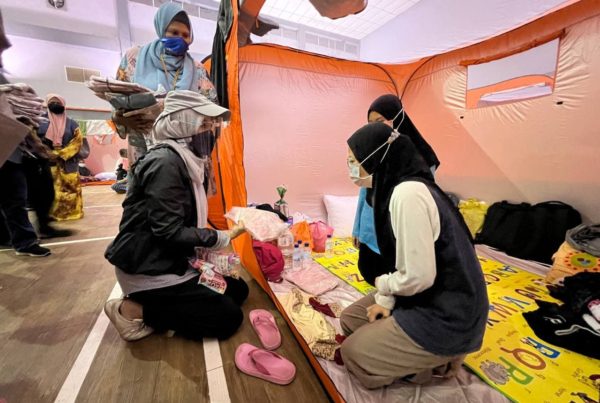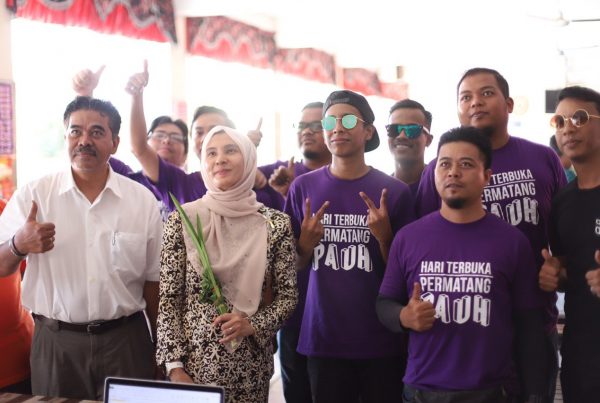The Utimate Malaysian Debate: Malaysia or Malaysaja? Part 4: (Imagine) Our common destiny, a journey towards true independence.
This is my final part in a four part article series titled ‘The Ultimate Malaysian Debate: Malaysia or Malaysaja?’.
However, I hope that all Malaysians will join together with me to write, Part 5: Malaysia Free at Last, as a fitting conclusion to our struggle for a Better Malaysia, soon.
So Let’s Imagine……
Fast forward to the year 2020, a new Malaysia has emerged from a long ardours journey that started more than 600 years ago in Malacca, a global cosmopolitan port-polity which is the meeting point of international trade and civilisations.
Malacca of yesterday is our true nation’s legacy, that embodies the spirit of universalism, inclusiveness, tolerance, industry and diversity, that is unfortunately lost to us today, drowned by an exclusive, racial, bigoted, feudalistic and narrow ideology.
This historical ‘Spirit of Malacca’ has become our redeeming feature for our new tomorrow.
We as a people have reclaimed it as the foundation and true spirit of our nation.
Our struggles and conflicts to fulfil the promise of Merdeka in 1957 have found a final definition and resolution.
Malaysia is now a fully functioning democratic and pluralistic nation that not only has become fully developed politically and economically but also has become a beacon of hope for other developing nations in charting their own unique nation-building path.
We have built a nation based on our common humanity rather than on our different ethnicity.
We have built our nation on a new script that has rejected the old destructive political theatrics.
We have built a sustainable and diversified economy.
We have built stable and independent institutions.
Malaysia has transcended narrow racial interest to shape a confident, humanistic and enlightened society based on our ‘Rukun Negara’ and universal values.
Article 153 became a liberating rather than an enslaving clause for the Malays.
The ‘politics of fear’ that used Article 153 as a political instrument to perpetuate a victim mentality by the few ruling elite was reclaimed by the Malays as an instrument for the new ‘politics of hope and liberation’, that transformed the Malay Mind from fear of losing their identity and economical development to a liberating force that created a confident community with a sustainable economic model.
Article 153 became the fulfilment of social justice objectives, as it was intended by the founding fathers.
The Malays had rediscovered the ‘Spirit of Malacca’ to become partners with other citizens in celebrating diversity as a source of national identity and empowerment.
We have honoured our founding fathers, and honoured the sacrifices of our fighters for independence along with our soldiers of all races, who fought defending this nation, by living our constitution in a true, equitable and sincere manner.
We have built a strong foundation based on a new ‘Contract for a Better Malaysia’, that will carry our children forward to an even brighter future.
Our experiences and history has become a lesson for the world in how a determined people can eventually be truly independent in spite of insurmountable odds.
We have become a nation of brothers, a true family of humanity, in a nation called Malaysia and not Malaysaja.
So how did we achieve this monumental task?
What events shaped this outcome?
What happened?
The answers lay in understanding the following historical process and philosophical justification perspectives rather than on a misguided ‘Social Darwinism’ dilemma inducing theory, which shamelessly used ‘the end justifies the means’ approach of race-based politics of fear, to undermine a people’s aspiration for freedom and liberty.
A Historical Process Perspective — The ‘Clash of Opposing Ideas’
A Historical Process Perspective interprets human events as a ‘clash of opposing ideas’, which is set on a historical development path that has a purpose, a guiding principle, a pattern and a final conclusion to it.
The ‘clash of opposing ideas’ theme alludes to a dialectic process of — a thesis and anti-thesis producing an eventual synthesis – which will define and shape human entities, for example a nation.
In the case of Malaysia, the path to reach our common national destiny is a journey or clash of two opposing ideas or interpretation of nationhood, between — a thesis (Ketuanan Melayu, Malay Supremacy) and an anti-thesis (Ketuanan Rakyat, People Supremacy) — that is necessary to create a synthesis (a Better Malaysia).
Therefore, is there a purpose or meaning to all the current racial tensions, political rhetoric, polemics and events plaguing our nation today?
How can we make sense of it? Is there hope for our future? Will things ever change for the better?
The Divergent Narrative of Malaysian History and Destiny
Currently, there exist two opposing and divergent narratives of our history that will shape our destiny. The two narratives are the ‘Ketuanan Melayu, Malay Supremacy’ and the ‘Ketuanan Rakyat, People’s Supremacy’ worldview.
In the ‘Ketuanan Melayu’ narrative, it is said (and in one long breath) that, ‘because we, the Malays ( who became dominant after the indigenous people in peninsular Malaysia), were influenced and colonised by several foreign nations and kingdoms throughout history (including Kedah which was conquered by a Tamil Emperor, Rajendra Chola and the Siam Buddhist Ligor Kingdom; Bruas, Perak ruled by the Khmer prince Raja Ganji Sarjuna, the Siam Sukhotai Kings and Indonesian Srivijaya empire that colonised part of peninsular Malaysia; Malacca as a vassal state to China’s Ming Dynasty, Indonesian Majapahit and the five northern states to Siam Ayutthaya Kingdom by paying tributes (ufti), the Acheh Sultan that ruled Pahang and Kedah; the Bugis from east Indonesia that ruled Johor then Selangor; the Minangkabau from Sumatera that ruled Negeri Sembilan — and due to the closing of the Asia to Europe land route by the Ottoman Empire and the need to search for an alternative sea route — came the Portuguese, Dutch, British, Japanese and then British again before independence) which in spite of experiencing a diversified east and west civilisations’ influence that should have made us global in outlook — we instead chose to dwell inward, playing the role as historical victims that projects blame on others- by focusing on the indignity of being made a ‘pendatang’ in our own land, when the British forced us to welcome other races as new comers or new ‘pendatang’ to share in the bounty of this land, while we were marginalised in political, education and economic matters, that upon independence, we demanded protection of our rights in the form of a ‘Social Contract’ — with the intended but never achieved — aim of achieving racial parity due to abuse and corruption, has made ‘Ketuanan Melayu’ (Malay Supremacy) our ‘true and noble cause’.
Meanwhile, in the ‘Ketuanan Rakyat’ narrative, it is argued in (again in one but shorter breath) that, ‘Yes while we acknowledge the circumstances we found ourselves in at independence that produced a contingent ‘special position’ for the Malays, that this privilege must not be abused by the few in its implementation and used as a reason to deny all the rakyat, who must be seen as co-partners and not ‘pendatang’ in a common nation founded on a constitution, the rights to grow and prosper mutually, as we face a globalised and competitive world together, is a natural cycle(phases) of history that demands equality through ‘Ketuanan Rakyat’ (Peoples Supremacy) to be our ‘true and noble cause.’
Regardless of how we choose the narration of our history which becomes the ‘truth’ upheld by both sides, these divergent narratives must be acknowledged as a necessary process for progress.
Each side believe that theirs is the ‘true and noble cause’.
Each side will advocate and defend their cause in a contest and clash of two opposing ideas of nation hood.
Therefore, does this historical process perspective puts everything in context?
Does it gives us the bigger picture of our nation’s struggle which will make us transcend all insignificant petty matters (in society, in our family, in our political parties) to forge together confidently because righteousness and history is on our side?
A Philosophical Justification Perspective — Defining the True and Noble Cause
Undeniably, the determining factor or driving force that will shape our nation’s historical process outcome, lies in, which of these two opposing ideas and philosophy of ‘Ketuanan Melayu’ (Malay Supremacy) and ‘Ketuanan Rakyat’ (Peoples Supremacy), is the ‘true and noble cause’?
Therefore, the most fundamental question or the philosophical justification of our entire debate is, how do we determine which qualifies as the rightful ‘True and Noble Cause’ for our nation’s destiny?
If we choose to rationalise the legitimacy of both causes, then from a humanistic, universal and even Islamic perspective, a cause based on exclusiveness of race can never be justified, become viable and sustainable.
And to proof this point, if we take the race based philosophy in the context that Malaysia is homogenously Malay, then there would not be inter-racial tensions but we would instead have intra-racial tensions.
Meaning that if the Malay and Non-Malay divide didn’t exist, then wouldn’t there be intra-racial tensions between the Javanese and Bugis or Minangkabau and Achehnese or Boyan and Mendeling and to top it off, between the Indian lineage Malay and the Arab or Turkish lineage Malay?
Consequently, wouldn’t all these Malay sub- groupings then would be seeking dominance and supremacy over the other ‘Malays’, each with their own version of say ‘Ketuanan Melayu Keturunan India’(Indian lineage Malay Supremacy) which in fact permeates the ruling party’s leadership, past and present?
What is also important is that one of the defining characteristic found in the constitution is that, a Malay is also a Muslim.
Therefore, shouldn’t Islamic philosophy and principles apart from- historical, cultural, genetics and Social Darwinism arguments — also be used to philosophically justify ‘Ketuanan Melayu’ (Malay Supremacy)?
With this we can find, that racism definitely, does not conform to the Islamic ‘Common Good Principle’ (Maslahah Umum) which demands ‘promoting the overall good (maslahat) and avoiding harm (mafsadah) in society’.
Since this principle is aimed at promoting the ‘common good’ and not an ‘exclusive good’ of a particular group or race, confirms without a doubt that racism is un-Islamic.
All of these examples go to illustrate the fact that a race-based philosophy is transient and expedient; hence it is impossible and unjust to be used to build a nation and sustain true national harmony.
Here then lies the answer to the fundamental and philosophical justified question of which of the two ‘Ketuanan’ or Supremacy, is the ‘True and Noble Cause’, that will drive our nation’s historical process to its natural and righteous outcome?
Indeed, history and philosophy is on the side of ‘Ketuanan Rakyat’.
In Conclusion
If we choose to see our current events in both — a historical process and philosophically justified perspective — then we can better understand and be assured that the outcome of a better Malaysia, is certainly based on ‘Ketuanan Rakyat’.
The dynamics and events of the ‘clash of ideas’, can sometime make us miss seeing the bigger picture unfolding which traps us in a narrow world view, and so we act defensively, selfishly and irrationally with destructive consequences.
For those who fail or choose not to understand, that there is a historical process and a philosophical justification, to create a synthesis of a better Malaysia, our outcome as a nation would appear uncertain which makes us desperate, delusional, depressed, pessimistic, cynical and inhumane. We are then seen driven by lust (nafsu), ego and a short term view of things and events.
But by understanding, that producing a synthesis of a better Malaysia is the definitive outcome; it will make us rational, calm, constructive, cooperative, optimistic and human.
We are instead driven by wisdom (hikmah), manners (adab) and a long term view of things and events.
Furthermore, it can be agreed that there is an imminent sense or instinct where the political divide of ‘Ketuanan Melayu’ (Malay Supremacy) and ‘Ketuanan Rakyat’ (Peoples Supremacy) is reaching a defining and conclusive end soon.
This general sense that the end-game is about to unfold and that our destiny is about to take shape, hangs in the air like a thick cloud.
Even if this cloud turns dark because the ‘game’ is not played democratically, then this must be seen, just as a temporary — reactionary — interruption of the unstoppable march of history driven by the ‘True and Noble Cause’ of ‘Ketuanan Rakyat’ (Peoples Supremacy).
So without a doubt, we have to preserve and be even more resolute in our determination for freedom and justice.
We have to close ranks, be united and continue the good fight to its righteous end.
The politics of fear must be replaced with the politics of hope and liberation.
Therefore, I call upon all true patriots to discuss, print and distribute or email all four articles to everyone you know without haste.
Let us create a constructive engagement climate, where all Malaysians can be set free with the ‘truth’.
Spread the word and message of hope that, a new dawn for a Better Malaysia for all Malaysians is approaching.
And God Willing, Our Common Destiny; a journey to true independence and liberty will have arrived.
Hidup Malaysia! Hidup Malaysia! Hidup Malaysia!



